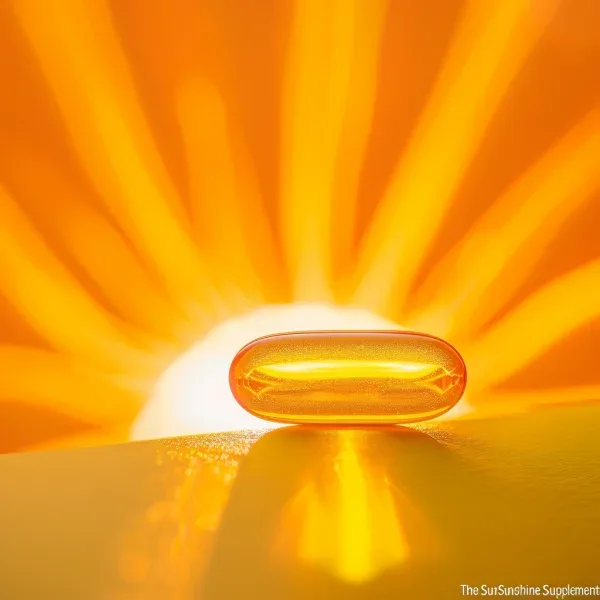by Gemma Delaney

From fortifying our bones to potentially shielding us against the likes of Covid-19, Vitamin D has been a buzzword in wellness circles lately despite a staggering one out of every five persons grappling with its deficiency. Read on to understand the underpinnings of this essential micronutrient and glean insightful ways to up your dosage—naturally.
Sustaining overall health calls for a balanced diet that serves up the right vitamins and minerals, and Vitamin D fits snugly into this wellness puzzle. This powerhouse nutrient facilitates calcium absorption in the gut, thereby playing a crucial role in preserving bone strength and deterring conditions such as osteoporosis.
However, achieving the recommended intake of Vitamin D throughout the year is tricky because of its limited availability in sunlight and dietary sources. As our skin generates Vitamin D through sun exposure, it gets challenging to procure enough during the chillier months. Hence, health organizations wisely recommend a regular intake of a 10 mcg supplement during the non-sunny stretch from October to March.
A Closer Peek at Vitamin D
Off-the-beaten-track from other vitamins, Vitamin D is in essence more a steroid hormone, courtesy of our body’s innate capacity to produce it. As highlighted by renowned researcher, Professor Adrian Martineau, we’re genetically designed to harvest Vitamin D from sunlight. Skin cells convert sunlight’s ultraviolet light into Vitamin D3 which is then absorbed into the bloodstream and processed by the liver.
The Prevalence of Vitamin D Deficiency
A lack of Vitamin D may be more widespread than current estimates show. This discrepancy is owing to the lack of a global consensus on what constitutes the minimum threshold of Vitamin D levels, meaning more people could be deficient in this key nutrient than currently reported.
The Ideal Daily Vitamin D Intake
Given the challenges tied to sourcing Vitamin D from sunlight and food alone, supplementary intake is an assured way up the intake ladder. While the recommended daily supplement dose is set at 10 mcg, up to 100 mcg can be taken without exceeding safety guidelines.
Vitamin D supplements come in two varieties: D2 (ergocalciferol) and D3 (cholecalciferol). While the former is derived from plants, the latter—preferred for being more effective and long-lasting—comes from sunlight and animal sources. Vegan-friendly Vitamin D3 supplements that are extracted from the fungus lichen are also readily available.
Vitamin D and its Role in Covid Immunity
Current research underscores Vitamin D’s role in fortifying our capabilities to fend off respiratory infections like the flu and common cold. As per an analysis conducted by a leading clinical research team, an everyday dose of 10 mcg-25 mcg of Vitamin D safeguards against respiratory tract infections. This finding is chiefly beneficial to asthma patients who are at greater risk of getting more severe symptoms from respiratory viruses.
More Advantages of Vitamin D
Vitamin D’s spectrum of benefits spans wider than bone health and resilience to respiratory infections. It is noted for its power to mitigate chronic inflammation in the body – a condition that is correlated to a whole host of illnesses including Alzheimer’s, cancer, diabetes, heart disease, and other autoimmune disorders.
Besides these, Vitamin D supplementation has shown promise in combating major depression in many individuals. As this space of research continues to unravel, our understanding of Vitamin D’s potential will only deepen and serve as a critical tool for boosting the immune system and overarching well-being.
Boosting Your Vitamin D Intake Naturally
Here are some easy-to-follow tips to increase your levels of Vitamin D:
- Sunlight: Aim for at least five-to-30 minutes of daily sun exposure on your hands, legs, arms, or face.
- Oily Fish: Consume large fillets of fish such as salmon or mackerel that are dense in Vitamin D.
- Mushrooms: Turn to UV-light grown mushrooms for a vegan-friendly Vitamin D source.
- Eggs: Incorporate eggs regularly in your diet.
- Cereals: Many breakfast cereals are fortified with Vitamin D and can contribute towards your daily intake.
Select smartly from a myriad of Vitamin D supplements available in the market. From oral sprays, capsules to even adhesive skin patches, choose the one that best aligns with your lifestyle and needs.
As we continue to uncover more about the wonders of Vitamin D, ensure you get your functioning dose in these trying times. Don’t forget to consult with medical practitioners before making any significant changes to your supplementation routine.
‘Vitamin D, micronutrient, sunshine supplement, bone density, osteoporosis, balanced diet, steroid hormone, respiratory infections, depressions, inflammation, Alzheimer’s, cancer, cardiovascular diseases, immunity booster, Covid-19, natural sources, supplements, oily fish, mushrooms, eggs, cereals’
Leave a Reply